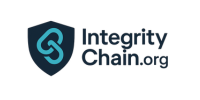France: The République’s Evolving Commitment to Whistleblower Rights

France has made significant strides in protecting whistleblowers over the past decade. From the early use of fragmented labor laws to a comprehensive national law enacted in response to the EU Directive, the country now offers improved legal safeguards, defined procedures, and—most recently—financial assistance. While not yet offering direct cash rewards like the U.S. or South Korea, France's evolving legal framework reflects growing recognition of whistleblowers as guardians of public interest. This post explores the key laws and the pivotal case of Antoine Deltour, the man behind the Luxembourg Leaks.
Legal Framework
1. Sapin II Law (2016)
- First comprehensive French legislation to protect whistleblowers.
- Defines a whistleblower as someone who reveals, in good faith and without direct financial interest, a crime, offense, serious threat, or harm to the public interest.
- Mandates:
- A three-tier reporting process: internal (to employer), external (to regulators), and finally public disclosure.
- Protection from retaliation, including dismissal or demotion.
- Obligation for companies with 50+ employees to establish internal reporting channels.
2. Law Transposing the EU Whistleblower Directive (March 2022)
- Strengthens the Sapin II framework.
- Expands the definition of whistleblower to include facilitators and colleagues.
- Removes the requirement of acting “selflessly,” allowing whistleblowers to have indirect interests (e.g., career, safety).
- Introduces a new support system, including psychological, financial, and legal assistance.
Case Study: Antoine Deltour and the Luxembourg Leaks
Background:
Antoine Deltour, a former employee of accounting firm PwC, leaked confidential tax rulings that exposed how multinational corporations used Luxembourg as a tax haven, depriving EU countries of billions in tax revenue.
Outcome:
- Faced criminal prosecution in Luxembourg for theft and violating confidentiality.
- In 2018, the Luxembourg Supreme Court overturned most charges, recognizing him as a whistleblower under the European Court of Human Rights standards.
- While he didn’t receive financial rewards, he became a symbol of ethical resistance and transparency in Europe.
Impact:
- Prompted EU investigations into tax practices.
- Strengthened calls across the EU for better whistleblower protections and fiscal transparency.
Strengths of the French System
- Clearly Defined Reporting Channels: The tiered approach helps escalate serious issues without immediate exposure.
- Legal Protection from Retaliation: Whistleblowers are shielded from employer sanctions if they follow reporting rules.
- Public Support Infrastructure: Facilitates access to psychological, legal, and financial aid.
- Broader Definition of Whistleblower: Now includes support staff, advisors, and family members, offering holistic coverage.
Limitations
- No Financial Rewards: France does not yet offer any kind of bounty or monetary reward, even if the disclosure results in massive public savings.
- Strict Disclosure Protocols: Whistleblowers must follow the three-tier system. Directly going to the media without prior steps may void protections.
- Enforcement Uncertainty: Implementation across private companies and public bodies remains uneven, particularly among small and mid-sized firms.
Cultural Shift Underway
France has traditionally had a centralized state culture, where revealing information publicly was often seen as betrayal rather than civic duty. But that is changing. High-profile cases and EU pressures have:
- Improved public perception of whistleblowers.
- Led to an increase in corporate ethics hotlines.
- Encouraged civil society to call for even stronger protections and incentives.
Conclusion
France’s whistleblower framework is evolving toward a more protective, humane, and comprehensive model. The Sapin II Law and the 2022 EU Directive implementation together form a strong backbone, even if rewards are still absent. As seen in the case of Antoine Deltour, whistleblowers can play a vital role in reshaping global systems—when they are given the support they deserve.



